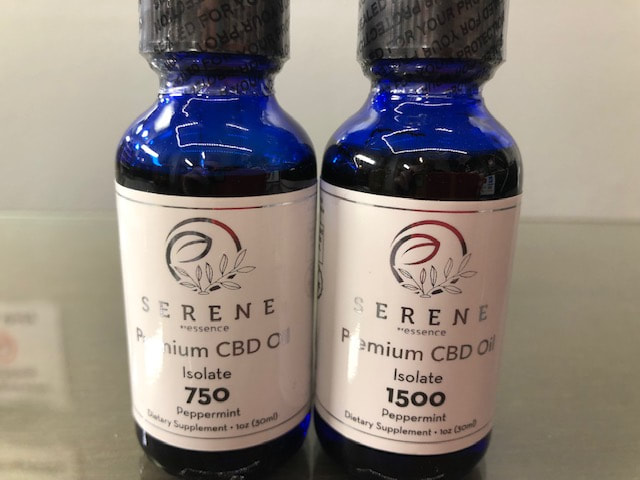In recent years, there has been a surge of interest in natural remedies for various health issues. Among these, hemp oil has gained widespread attention due to its potential health benefits. Derived from the Hemp sativa plant, hemp oil has garnered interest from researchers, health enthusiasts, and consumers alike. In this blog post, we will delve into the science behind hemp oil to understand its composition, potential therapeutic properties, and ongoing research in this exciting field.
Understanding Hemp Oil Composition
Hemp oil is extracted from the seeds of the hemp plant. It is essential to differentiate between hemp oil and CBD oil. While both come from the Hemp sativa plant, hemp oil is made from the seeds, whereas CBD oil is extracted from the plant’s flowers and leaves. Hemp oil does not contain significant levels of cannabinoids like THC (tetrahydrocannabinol), the psychoactive compound responsible for the “high” associated with hemp. Instead, hemp oil is rich in essential fatty acids, including omega-3 and omega-6, vitamins, minerals, and antioxidants.
Health Benefits of Hemp Oil
a) Skin Health
Hemp oil is renowned for its potential benefits for skin health. It has moisturizing properties and can help soothe dry, irritated, or inflamed skin. The presence of gamma-linolenic acid (GLA) in hemp oil may contribute to its anti-inflammatory properties, making it potentially helpful for conditions such as eczema, psoriasis, and acne.
b) Heart Health
The abundance of omega-3 and omega-6 fatty acids in hemp oil can positively impact heart health. These essential fatty acids may help reduce bad cholesterol levels, maintain healthy blood pressure, and support overall cardiovascular function.
c) Brain Function
Hemp oil contains omega-3 fatty acids, which are vital for brain health and development. These fats are crucial components of cell membranes in the brain and can help support cognitive function and mental clarity.
d) Pain Management
Hemp oil’s potential anti-inflammatory properties have led to its exploration as a natural pain reliever. Some studies suggest that hemp oil may help reduce chronic pain and discomfort associated with conditions like arthritis.
The Endocannabinoid System (ECS) and Hemp Oil
To fully understand how hemp oil may impact the human body, we must delve into the endocannabinoid system (ECS). The ECS is a complex cell-signaling system present in mammals, including humans. It plays a crucial role in regulating various physiological processes, such as mood, appetite, pain sensation, and immune response.
The ECS consists of three main components: endocannabinoids (produced by the body), receptors (CB1 and CB2), and enzymes that break down endocannabinoids. When there is an imbalance or deficiency in the endocannabinoids, the body may not function optimally, leading to various health issues.
Hemp oil, although not a direct source of cannabinoids like CBD oil, may interact with the ECS indirectly. Some researchers propose that the beneficial effects of hemp oil could be attributed to its influence on the ECS, promoting homeostasis and overall well-being.

Research on Hemp Oil
The scientific community is actively investigating the potential health benefits of hemp oil. However, it is essential to acknowledge that much of the current research is preliminary, and more extensive human studies are needed to establish concrete conclusions.
a) Anxiety and Stress
Several animal studies suggest that hemp oil may have anxiolytic and stress-reducing effects. However, human trials are scarce, and further investigation is necessary to determine its efficacy in managing anxiety disorders in humans.
b) Sleep Disorders
Some anecdotal evidence indicates that hemp oil may improve sleep quality and help with insomnia. However, scientific studies in this area are limited, and more controlled trials are required to substantiate these claims.
c) Neurological Disorders
Researchers are exploring the potential of hemp oil in managing neurological disorders such as epilepsy and Parkinson’s disease. While some studies have shown promising results in animal models, more human research is needed to validate these findings. If you are looking for some ideas about the science behind hemp oil, you may visit JohnnyHolland for further info.
Dosage and Safety Considerations
Before incorporating hemp oil into your daily routine, it is crucial to consult with a healthcare professional, especially if you are taking other medications or have existing health conditions. The appropriate dosage may vary based on individual needs and health goals.
Conclusion
Hemp oil has emerged as a promising natural supplement, with numerous potential health benefits attributed to its composition and interaction with the endocannabinoid system. As research into hemp oil continues to grow, we can expect more concrete evidence regarding its therapeutic properties. However, it is essential to approach hemp oil as a complementary addition to a healthy lifestyle rather than a sole solution for medical conditions. As always, it is wise to consult with a healthcare professional before incorporating any new supplement into your wellness routine. With ongoing research and a better understanding of the science behind hemp oil, we can unlock its full potential for enhancing human health and well-being.
